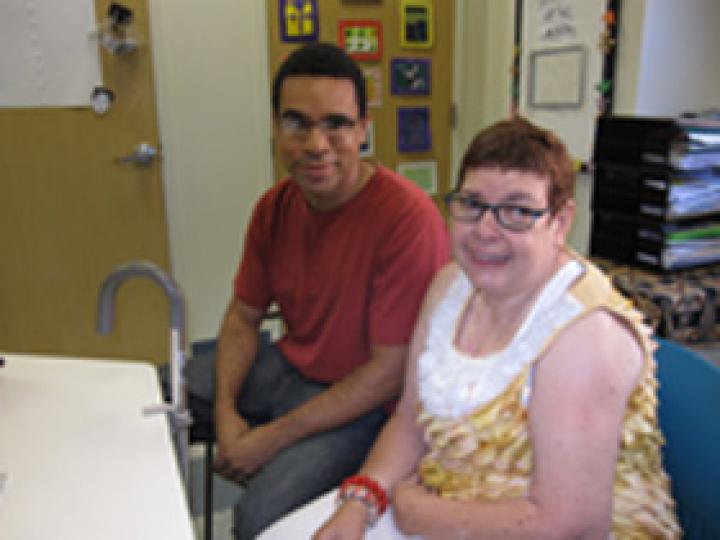As I walked into the socialization group at YAI's Bronx Day Services earlier this week, the conversation among a group of young men and one staff member came to an awkward and abrupt stop.
"We discuss a lot of things," said Martin, part of the group, adding that girl problems was definitely a common topic.
One of the men asked me how I would feel if my doctors were OK with my eating habits, how I would feel if people started telling me what and when to eat. He happened to be picking at his lunch during the discussion.

"Do you mean like the Mayor telling New Yorkers they may not be able to have a 20-ounce Pepsi at the movie theater or ballgame?" I asked.
The dialog continued, but what fascinates me is that there clearly were important issues being discussed prior to my arrival and that peers were comfortable enough with one another to discuss and try and help each other problem solve.
These are very real issues and as New York State prepares for the People First Waiver -- many people will be weighing in on these and other topics.
In another room, Joe Alfonso, an ABSS, was working with seven men and two women, who were part of an autism support group. As they watched a video on carrying out a conversation, Joe would role play with group members to practice different skills, including listening, talking and picking up on non-verbal cues, such as expressions and body language.
Earlier in the day, I met with Janette, a 57-year-old woman with a wonderful sense of humor. Janette relies on a cane, and frequently, it would fall after leaning against a table. Staff would frequently take the cane and prop it up in a corner, but that meant Janette had to rely on staff whenever she wanted to get up or leave the room. Justin McIntyre, a Community Training Specialist, developed a cane holder using two wall brackets, a clamp and felt tape -- not exactly high tech -- but it has made a dramatic different in Janette's life. "Now I can get the cane on my own. I don't have to ask for help. I'm independent," she said.
To help the field move to the next level of meaningful community inclusion, it seems that agencies who provide the residential supports for people with disabilities will have to make some major adjustments. No one likes to be told what and when to eat, yet for many people living in group residences, there are set hours for meals and snacks. It's all part of a routine. There also are visitation restrictions in some homes -- only on these days or between these hours. And if someone has a girlfriend a few miles away, will there be sufficient support for staff to ensure the couple can spend time together when they want to -- not based on a schedule. And how is the field going to further increase independence for all individuals? Innovation will be a key component.
This is an opportunity for people with disabilities to hopefully work with organizations throughout the state to let them know what's important to them. There will be more choice and with that, individuals will have to take on more responsibility.
Yes, there are many challenges ahead. But there also are many opportunities!
